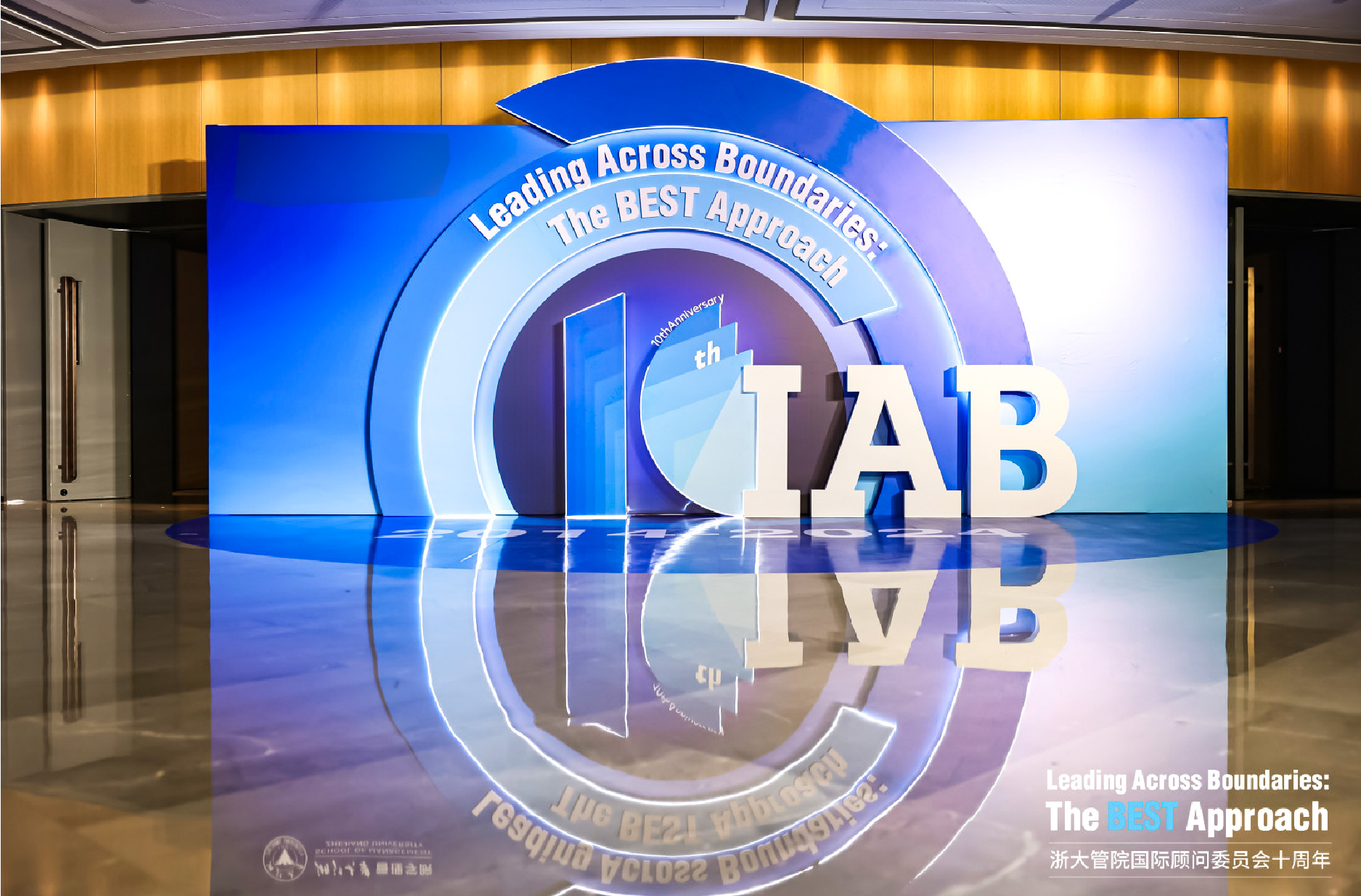
Despite the rapid development of science and technology, we as a society still face many challenges. Various essential global issues such as severe climate change, the increased risk of supply chain disruptions, and the uneven development of the healthcare system need to be addressed urgently.
On September 19, 2024, at the forum "Leading Across Boundaries: The BEST Approach" held at Zhejiang University, School of Management, members of the International Advisory Board (IAB) of our School of Management, deans of business schools of top international universities, and well-known entrepreneurs from China, the United States, Canada, the Netherlands, Singapore, France, and other countries, came up with a unanimous conclusion: "Cross boundaries! Work together to promote the interdisciplinary integration of business, engineering, science, and technology".

With a focus on "crossing boundaries", participants have induced an interdisciplinary exchange of ideas and a global dialog on business culture, based on the cutting edge of disciplinary and practical development.
At the same time, we jointly celebrated the 10th Anniversary of the establishment of the International Advisory Board of School of Management at this forum, and jointly opened the next decade of all-round cooperation and dialog.
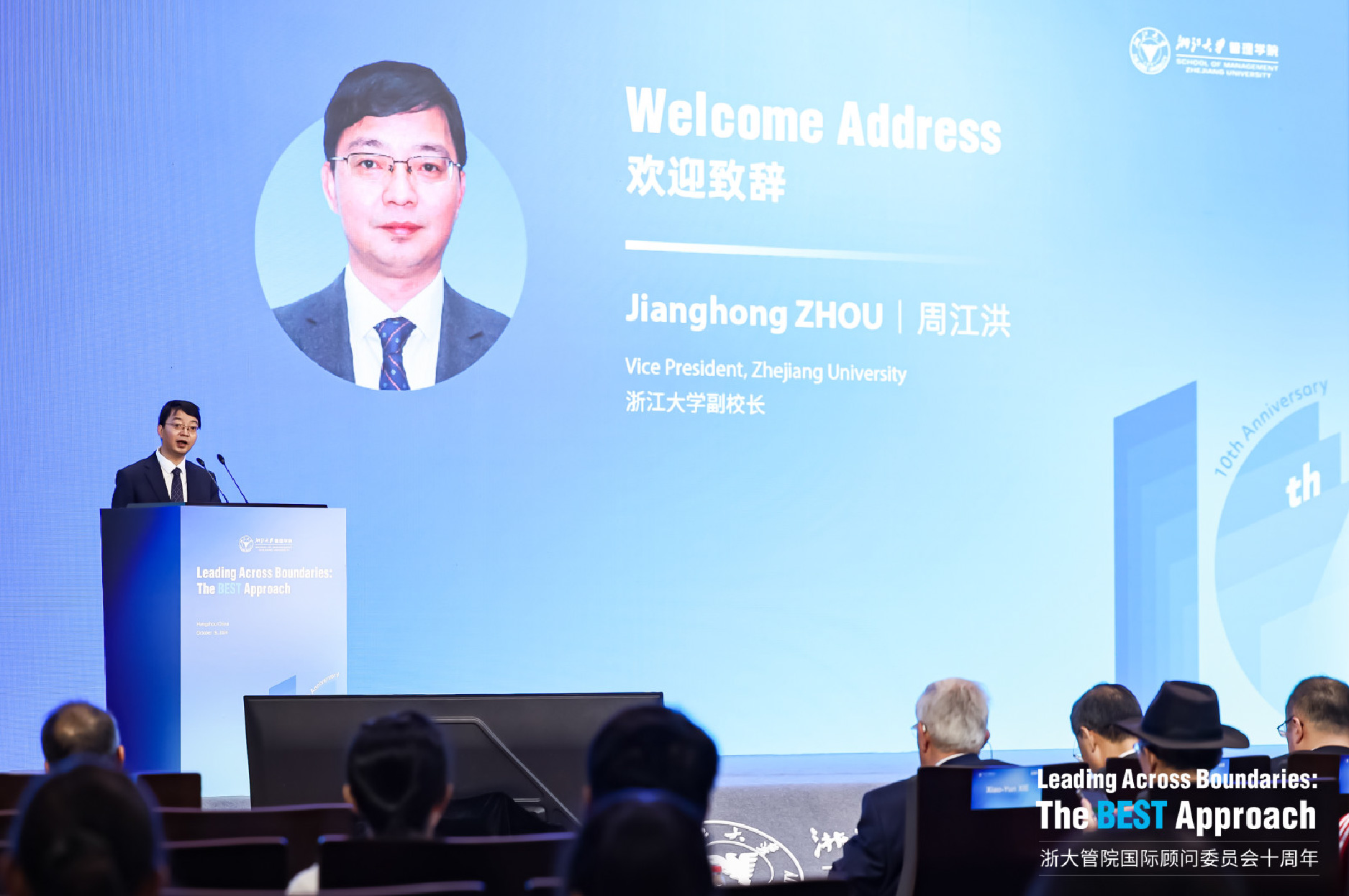
|
Zhejiang University Vice President Zhou Jianghong delivered a welcome speech |
On behalf of Zhejiang University, Vice President ZHOU Jianghong warmly welcomed the members and expressed his sincere thanks. He said that interdisciplinary integration is the main driving force for promoting scientific and technological innovation and social development. The management discipline, as a catalyst for interdisciplinary integration, should effectively promote the interdisciplinary integration of business, engineering, science, and technology, implement global development initiatives, and cooperate in solving global development problems.
Zhejiang University has always attached great importance to and actively promoted cross-disciplinary integration, and has achieved a number of breakthrough results in recent years. For example, the School of Management has proposed and implemented the "BEST Strategy for Cross-Disciplinary Integration" and conducted cooperative research with the School of Science, Engineering, Agriculture, and Medicine in the fields of green consumption, entrepreneurship, intangible cultural heritage, artificial intelligence applications, and digital transformation of enterprises. ZHOU Jianghong expressed the hope that the members of this forum can stimulate more innovative thinking and cooperation opportunities, and contribute to jointly tackling global challenges and promoting the prosperity and development of the world economy through exchanges, dialog and mutual learning of global economic cultures.
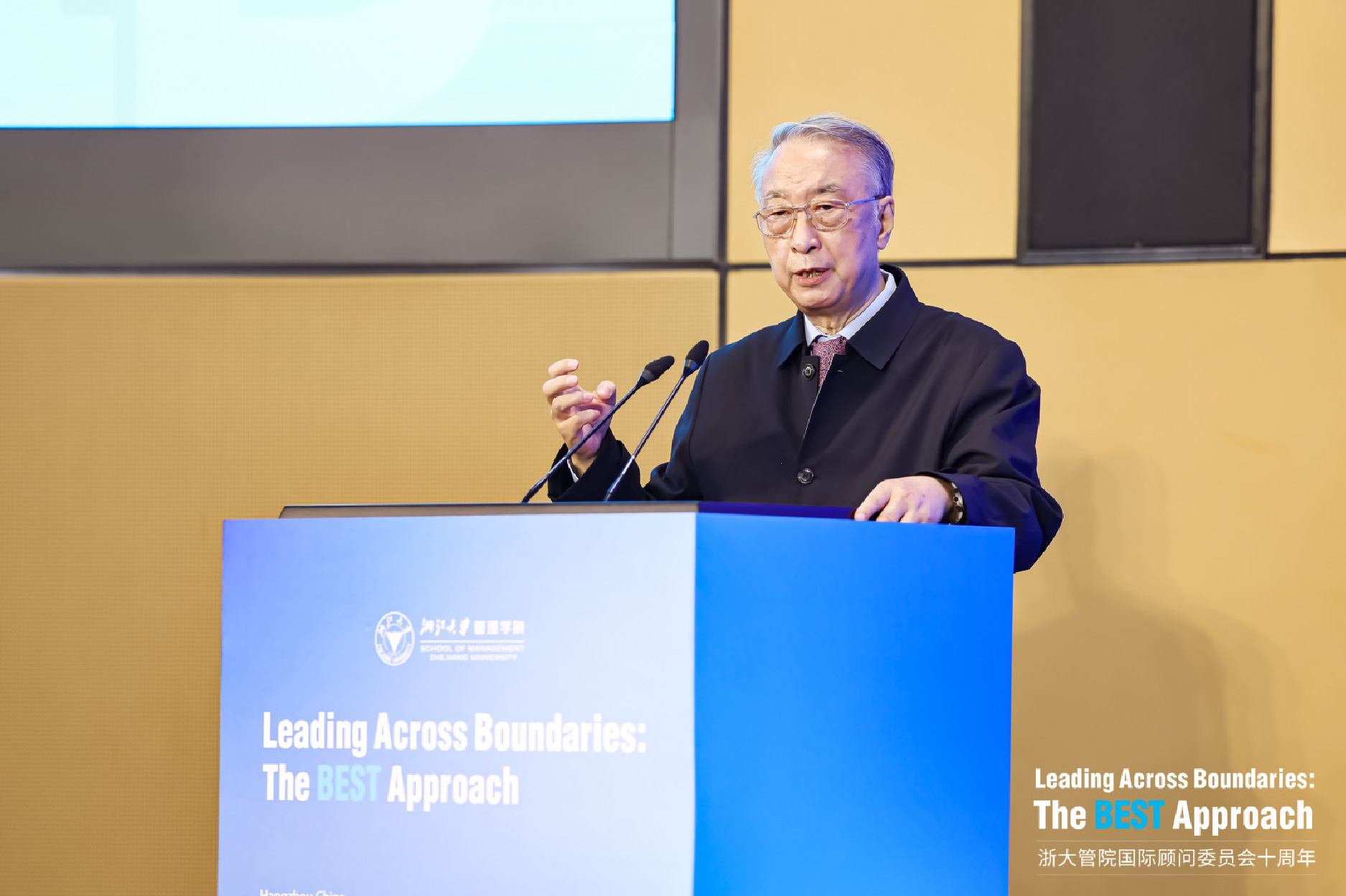
|
ZHANG Xinsheng, Chairman of the International Advisory Board of Zhejiang University School of Management, delivered an opening speech |
In his opening speech, ZHANG Xinsheng, Chairman of the International Advisory Board of the School of Management, said that there are three major problems and contradictions in the 21st century that can only be solved through interdisciplinary integration. The "BEST strategy of interdisciplinary integration" proposed and implemented by the School of Management is an answer to the complex problems of today’s information society and digital society. Combining the history of interdisciplinary education between East and West, he emphasized that education based on interdisciplinary integration helps students become "great people". He believes that the "BEST strategy of interdisciplinary integration" will become a "milestone" in the history of the development of education at the School of Management and also means that the future education of the School of Management will be oriented towards modernization, the world, and the future.
ZHANG Xinsheng put forward three suggestions on how to help the School of Management better implement the "BEST strategy of interdisciplinary studies:
|
“ |
First, cultivate students’ critical thinking ability; second, cultivate generalists through interdisciplinary studies; and third, cultivate students’ ability of interdisciplinary "learning-to-learn". |
|
IAB 10th Annivarsary Celebration Ceremony |
Whether it is building a community with a shared future or establishing a world-class School of Management, international cooperation and intercultural dialog are essential.
As the first management school on the China’s Mainland to receive international accreditation, Zhejiang Universitys School of Management has been rooted in China for many years while looking to the world. In order to create international management education and promote global economic and social development, our school has continued to explore international cooperation networks. In 2014, we brought together the deans of the world’s leading business schools, well-known scholars, entrepreneurs, etc. to establish the Zhejiang University School of Management International Advisory Board.
To thank the members for their suggestions on the School’s overall planning and development over the years, and for their important contributions to promoting dialog and exchanges between the School of Management and global business schools, as well as innovative changes in business education, the Forum celebrated the 10th Anniversary of the School of Management’s International Advisory Board.
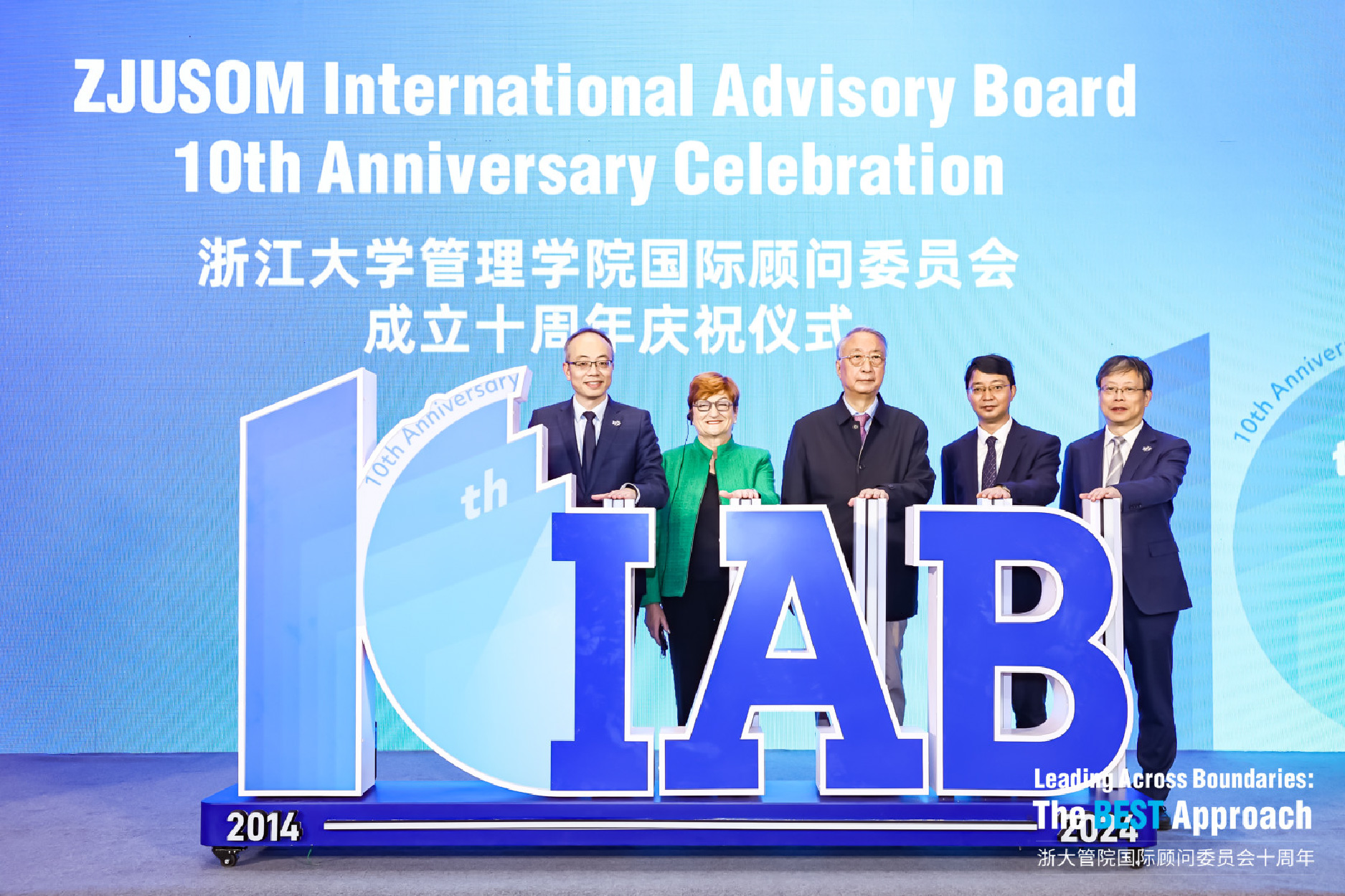
|
From left to right: XIE Xiao-Yun, Danica Purg, ZHANG Xinsheng, ZHOU Jianghong, ZHU Yuan |
ZHOU Jianghong, Vice President of Zhejiang University, ZHANG Xinsheng, Chairman of the International Advisory Board of School of Management at Zhejiang University, Danica Purg, Member of the International Advisory Board, Dean of Bled School of Management, International Development Management Center of Slovenia, and President of the International Alliance for Management Development in Emerging Economies (CEEMAN), XIE Xiao-Yun, Dean of the School of Management at Zhejiang University, and ZHU Yuan, Secretary of the Party Committee of the School of Management at Zhejiang University, went on stage to celebrate the 10th anniversary of the establishment of the International Advisory Board of the School of Management and jointly opened a new chapter of cooperative dialog.
|
Keynote Speaches and Reports |
At the forum, LIN Jianhua, former president of Zhejiang University and former president of Peking University, gave an opening speech entitled "Breaking Down the Barriers of the Boundaries".

|
LIN Jianhua, former president of Zhejiang University and Peking University |
LIN Jianhua said in his speech that the current environment of higher education has undergone tremendous changes. Only by learning knowledge that keeps pace with the times can students adapt to the rapidly changing society. This requires universities to open their borders in the future and provide students with access to richer learning resources.
He concluded that the previous model of education, which focused on the transmission of knowledge, is no longer suitable for the demands of today’s era of open knowledge.
|
“ |
We cannot create knowledge for the sake of knowledge, but should create knowledge for the sake of application and benefit.” |
In his view, the essence of education is actually a process of knowledge transformation. Students should transform the explicit knowledge they have learned into tacit personal knowledge and skills through thinking, reflection, and criticism. Because in the age of artificial intelligence, tacit knowledge is the source of human uniqueness and creativity. Only when people retain their humanistic characteristics can they be irreplaceable. LIN Jianhua believes that the purpose and original intention of education is to liberate the mind and release the potential of students so that each student can understand themselves, society, China, and the world.
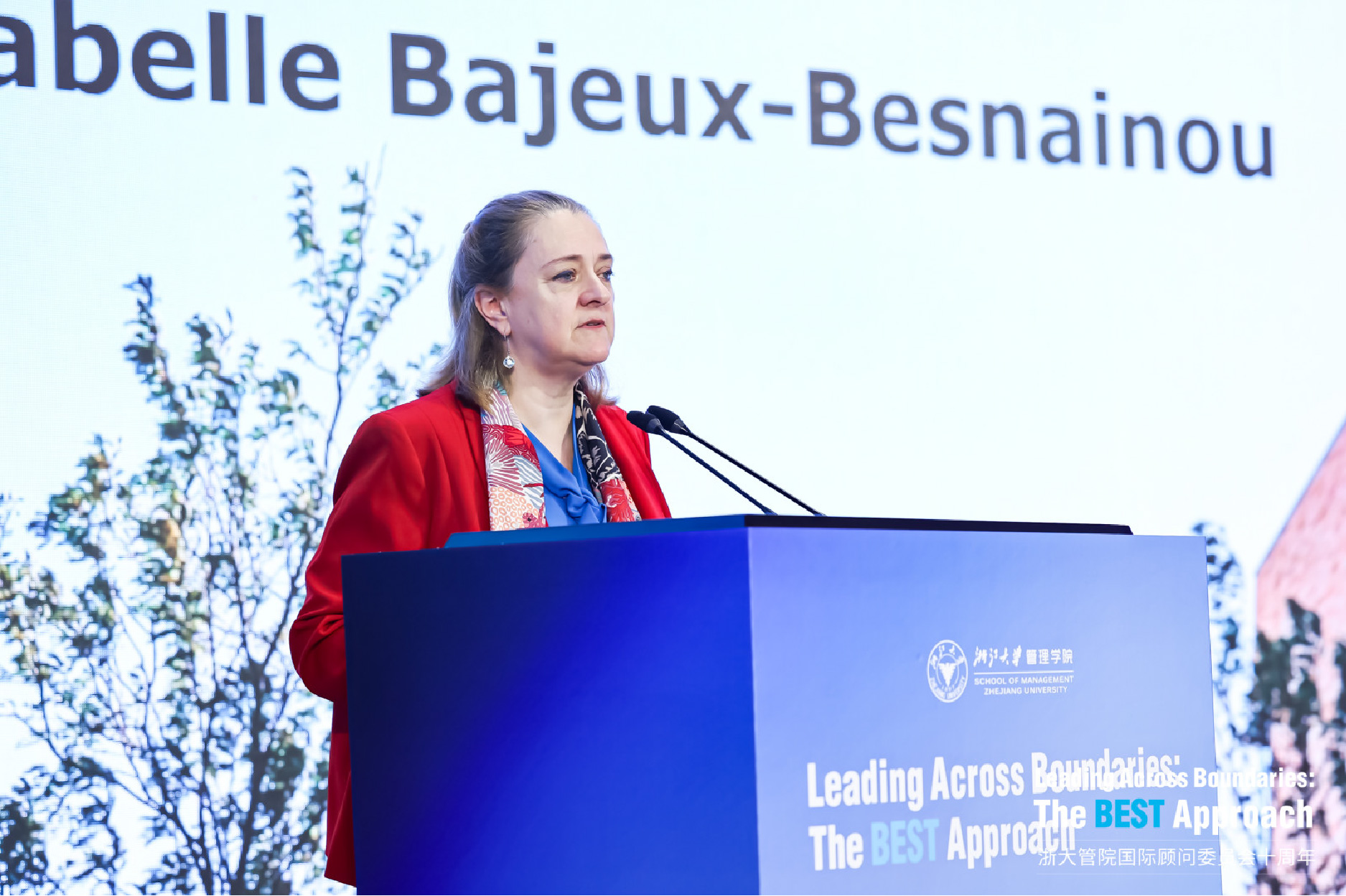
|
Isabelle Bajeux-Besnainou, Dean of Carnegie Mellon University’s Tepper School of Business |
|
“ |
Interdisciplinary cooperation is a very important culture in universities. Nowadays, many studies to solve major social problems are carried out by experts from different fields.” |
Isabelle Bajeux-Besnainou, Dean of University Tepper School of Business at Carnegie Mellon University, used the example of Carnegie Mellon University’s product management education to explain the importance of interdisciplinary education and research in her keynote speech. She said that the emergence and application of artificial intelligence will play an important role in future economic and social development. Business education must focus on the development of science and technology and cultivate composite talents who understand both business and technology through interdisciplinary education.
|
“ |
With this in mind, Carnegie Mellon University’s Tepper School of Business, in collaboration with the School of Computer Science, has launched the world’s first master’s program in product management, which includes a minor in product management and executive courses, and offers customized courses for technology companies. The school not only works closely with other disciplines, but also with companies." |
Product management education has become a model for interdisciplinary collaboration, involving multiple fields such as computer science, engineering, human-computer interaction, and business, helping to train interdisciplinary talents who can meet the demands of the times.
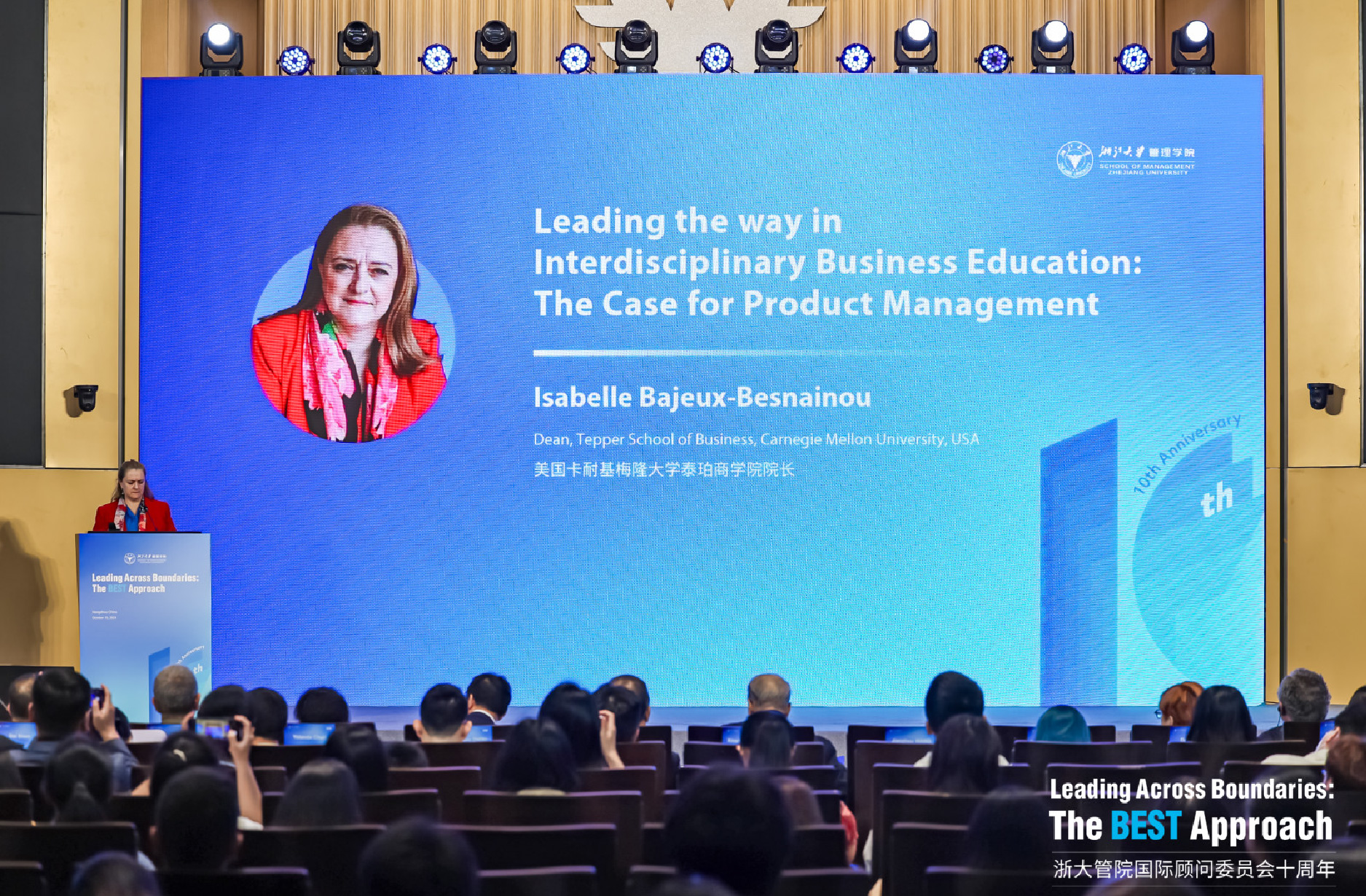
Isabelle Bajeux-Besnainou believes in the importance of interdisciplinary research for solving the major challenges and problems of global society.
|
“ |
Interdisciplinary research is also a very important culture of our Tepper School of Business at Carnegie Mellon University. Currently, many of our major research projects are conducted jointly by experts from different fields." |
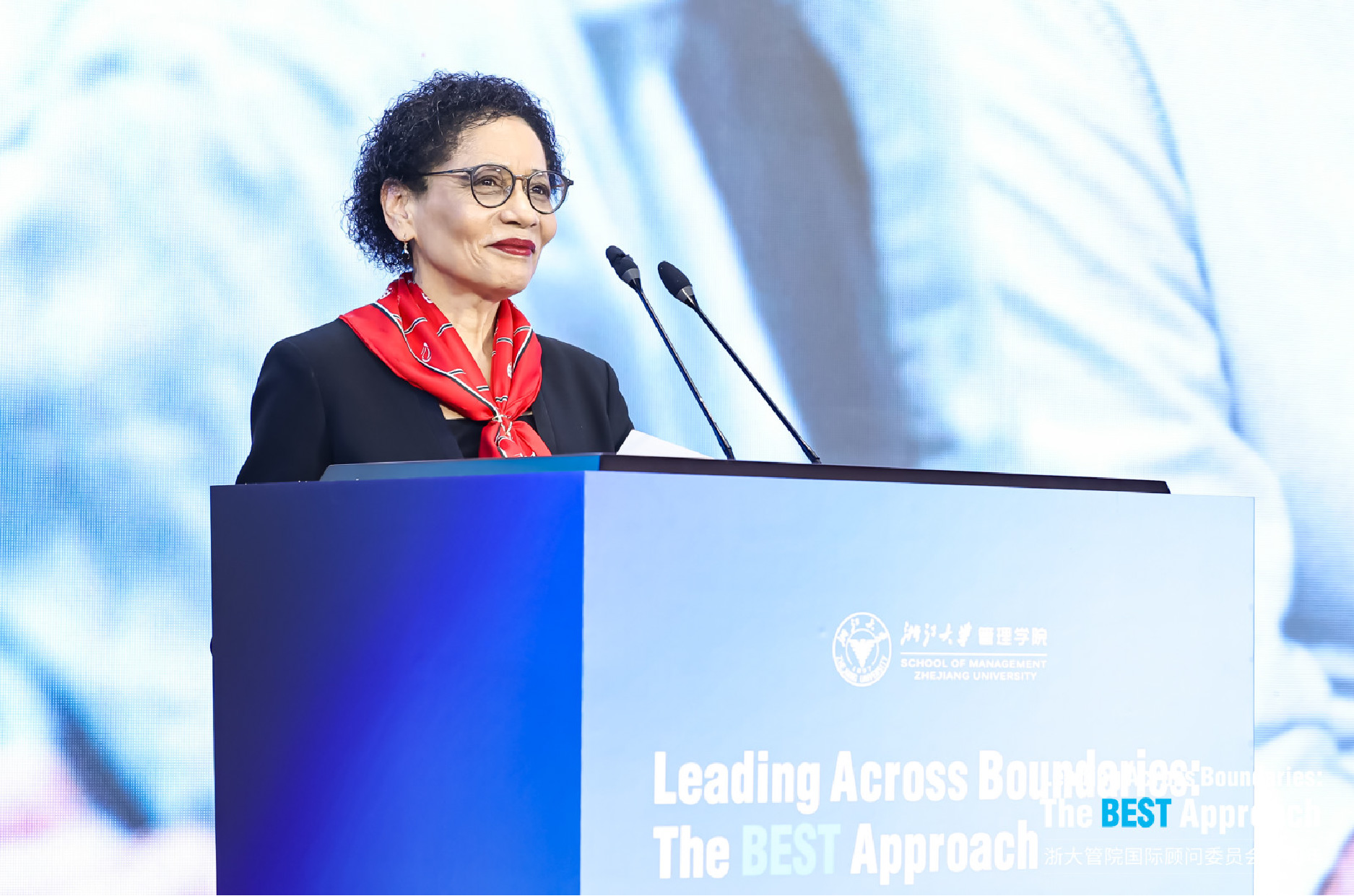
|
Yolande Chan, Dean of the Desautels Faculty of Management at McGill University |
Yolande Chan, Dean of Desautels Faculty of Management at McGill University, shared her views on interdisciplinary collaboration. She concluded that the world has changed tremendously and the emergence of many disruptive technologies has changed our society and also created new problems. We need to help organizations and decision-makers to solve these complex problems, such as the current challenges of sustainable development and climate change, by conducting practical and influential interdisciplinary research.
Yolande Chan explained that in recent years, McGill University has led teaching and scholarly research with the three pillars of teaching, research, outreach, and collaboration. She believes that only through interdisciplinary collaboration and intercultural exchange can innovation be stimulated and solutions to major global problems be promoted. "In recent years, I have conducted interdisciplinary research on innovation, digital strategy, and human-machine collaboration. McGill University has also discovered more opportunities through interdisciplinary research. I believe that cooperation and collaboration between different disciplines and fields will have a more positive impact on industry, business, and society."

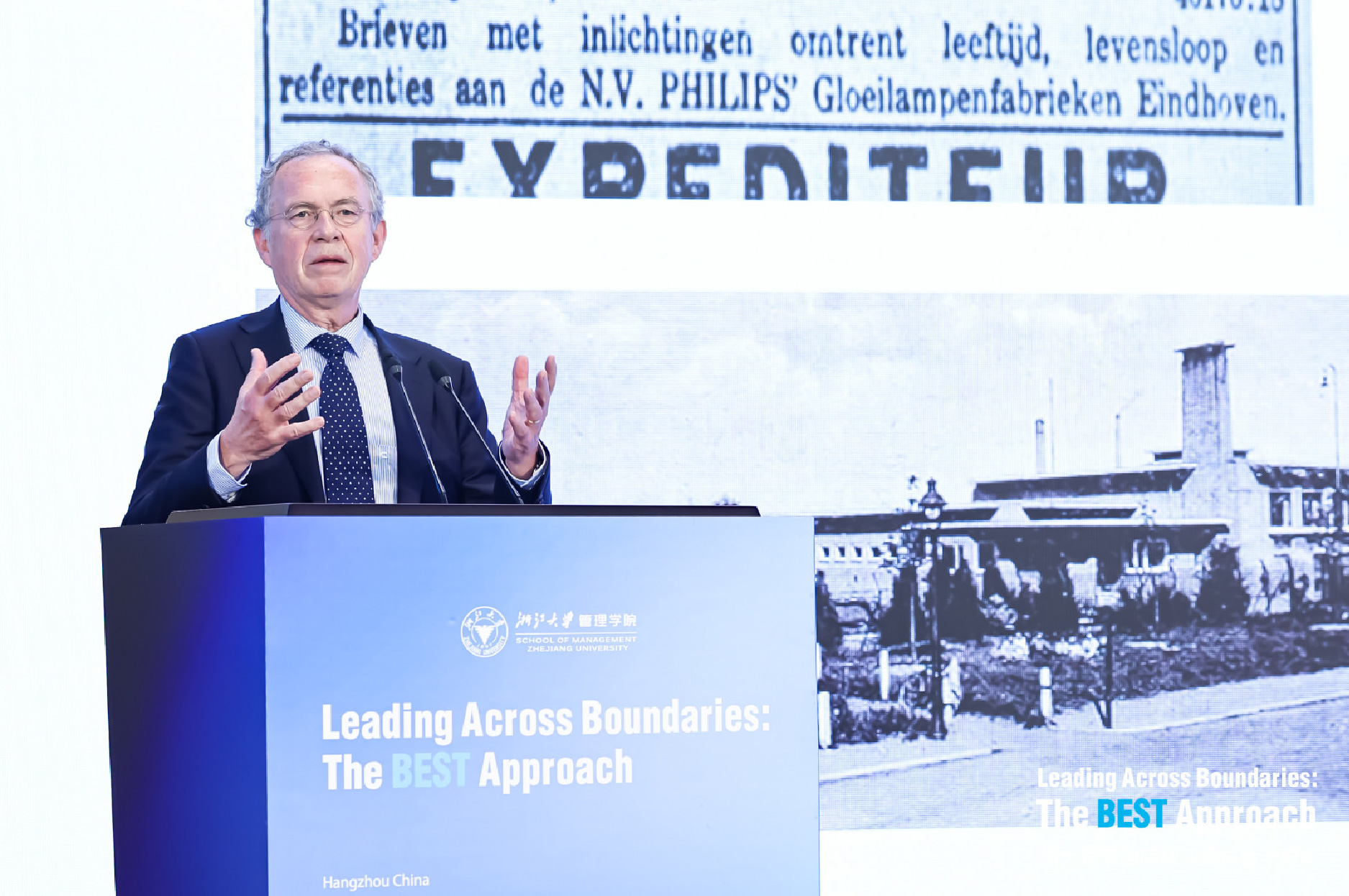
|
Frans Greidanus, former Chief Technology Officer of Philips Asia |
Frans Greidanus, former Chief Technology Officer of Philips Asia, linked his personal career development to the Philips growth story and shared his thoughts on "multidisciplinary, interdisciplinary and cross-disciplinary education and research". In his report, he elaborated on the various definitions and differences of "disciplinary research, interdisciplinary research, and cross-disciplinary research": multidisciplinary research is applicable to the study of the same topic from the perspective of several different disciplines, crossing disciplinary boundaries but allowing the disciplines to retain their own voices; interdisciplinary research requires the integration of methods, concepts, tools and theories and can accomplish more than monodisciplinary research; cross-disciplinary research involves not only students and scholars but also other societal partners investigating complex issues.
Referring to the example of the Philips Research Laboratory, which was established a hundred years ago, he said that laboratories should not be divided according to different disciplines, but multidisciplinary teams should be formed. He said that the total number of disciplines today is much larger than 100 years ago and that we need to integrate these disciplines across the board to cope with the increasingly complex global environment. Therefore, he recognized the "BEST Strategy for Interdisciplinary Studies" implemented by Zhejiang Universitys School of Management.
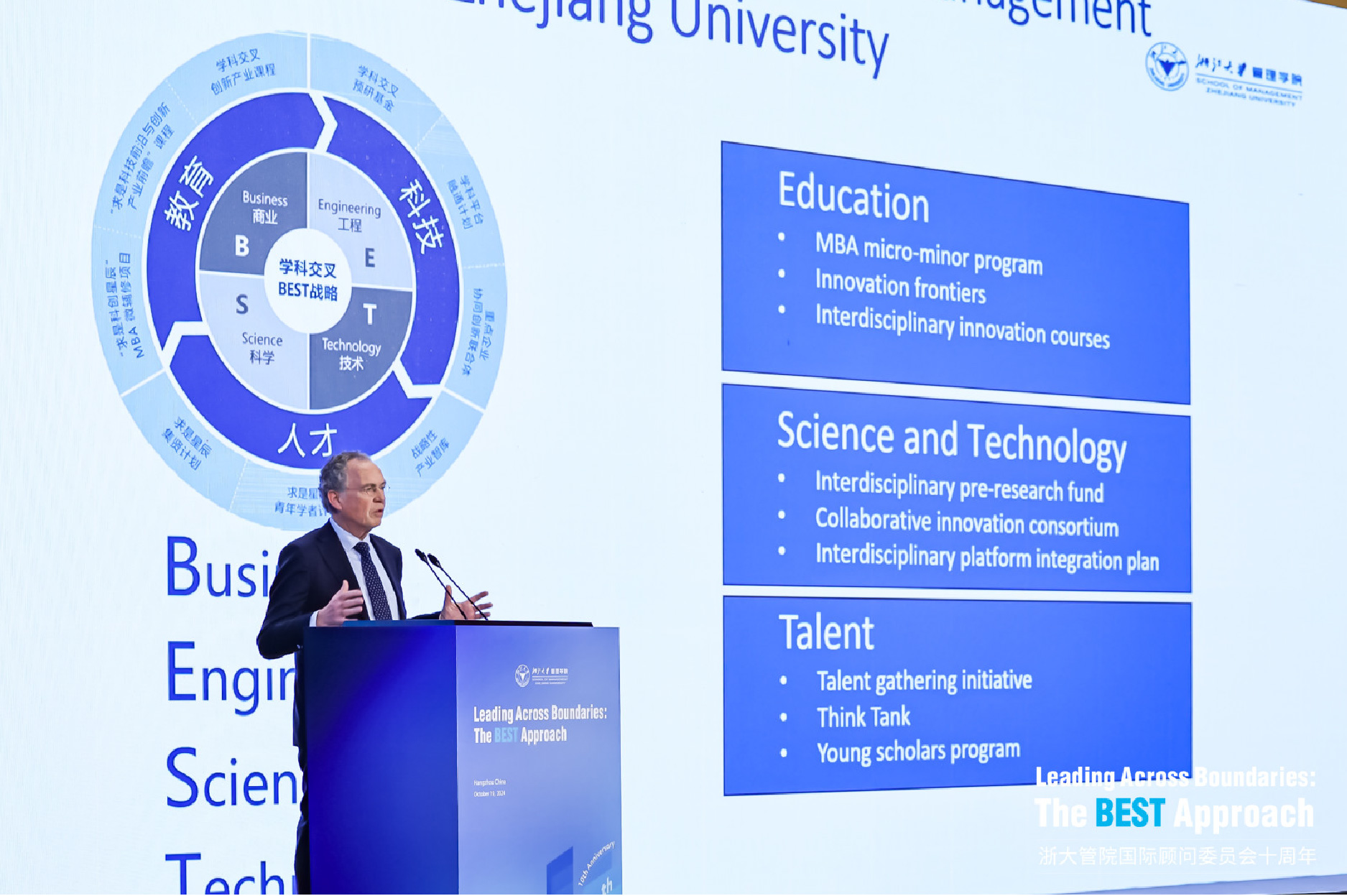
|
“ |
In the future will be an international market, and we need to cultivate talents with international vision and cross-cultural management capabilities. Nowadays, more and more Chinese companies are going overseas. If they want to succeed, managers must understand the overseas market culture, including knowledge and skills related to overseas business operations. At the same time, they also need to have cross-cultural management capabilities to manage a diverse team." |
|
Roundtable Discussion |
In the roundtable discussion led by Professor HUANG Can, Associate Dean of Zhejiang Universitys School of Management, Andrew Rose, Dean of National University of Singapore Business School, Danica Purg, Dean of Bled School of Management, International Development Management Center of Slovenia and President of International Alliance for Management Development in Emerging Economies, and WANG Jianzhou, Senior Advisor of the Global Mobile Communications Association and former Chairman of China Mobile Communications Group, engaged in a lively dialog and exchanged views on topics such as barriers to collaboration in interdisciplinary research and how to overcome them, designing business school curricula that adapt to the development of the times, and transforming technological achievements.
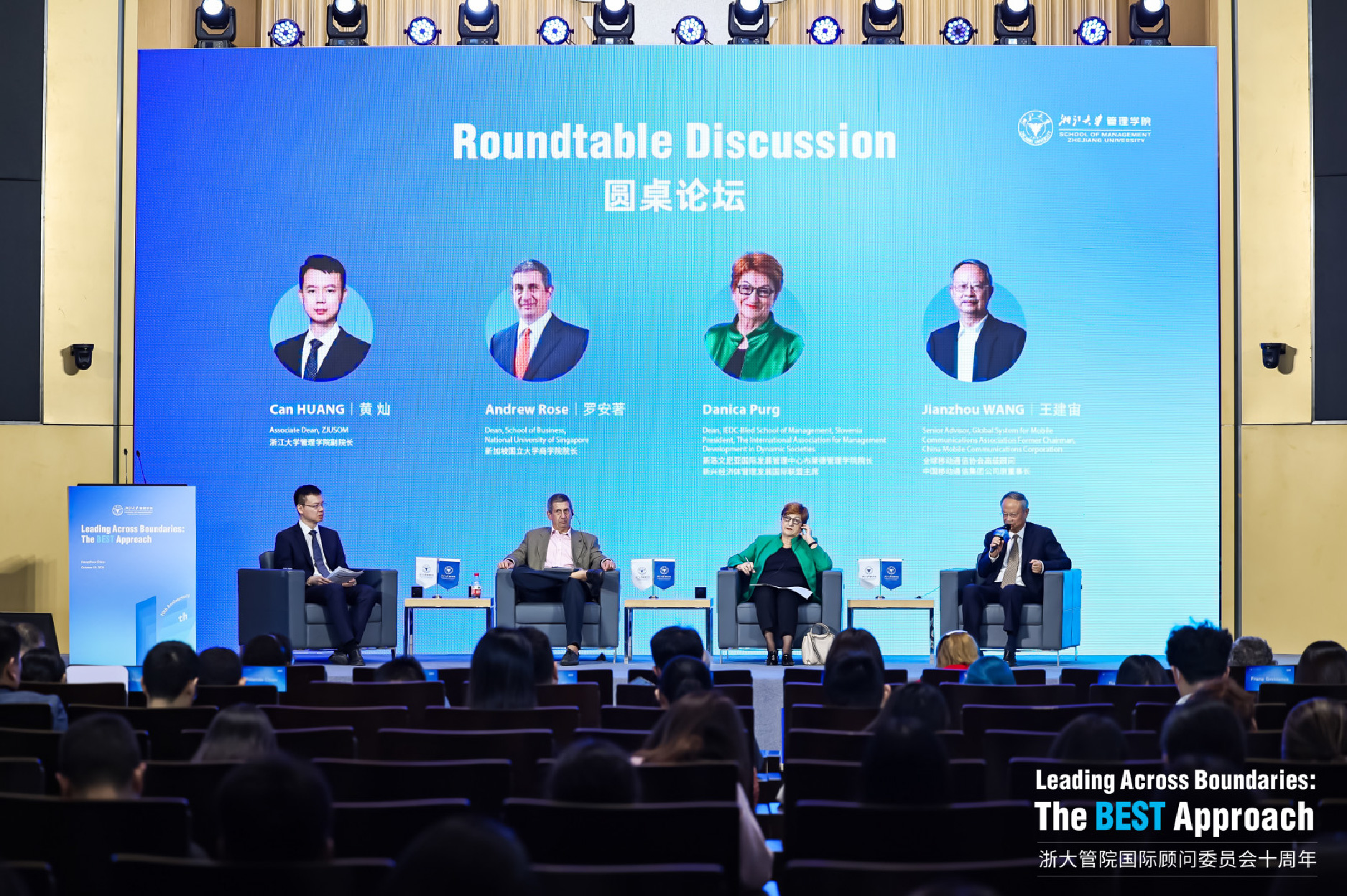
All participants in the discussion agreed that business schools must maintain close contact with industry, take into account the real needs of the country and society, and conduct meaningful and valuable interdisciplinary research. However, the different disciplinary and cultural backgrounds are multi-layer problems that cannot be ignored in interdisciplinary cooperation. Therefore, it is necessary to strengthen cooperation between the country, enterprises, and schools, focus on the transformation of technological achievements, and better promote the sustainable development of the economy and society through exchanges, mutual learning, cooperation, and dialog.
They hope to develop mature management theories and tools suitable for the digital age through interdisciplinary cooperation and exchanges in the future, guide global economic development under new conditions, and cultivate management talents with adaptability and open-mindedness to better guide the development of enterprises and countries and promote the progress of human society.
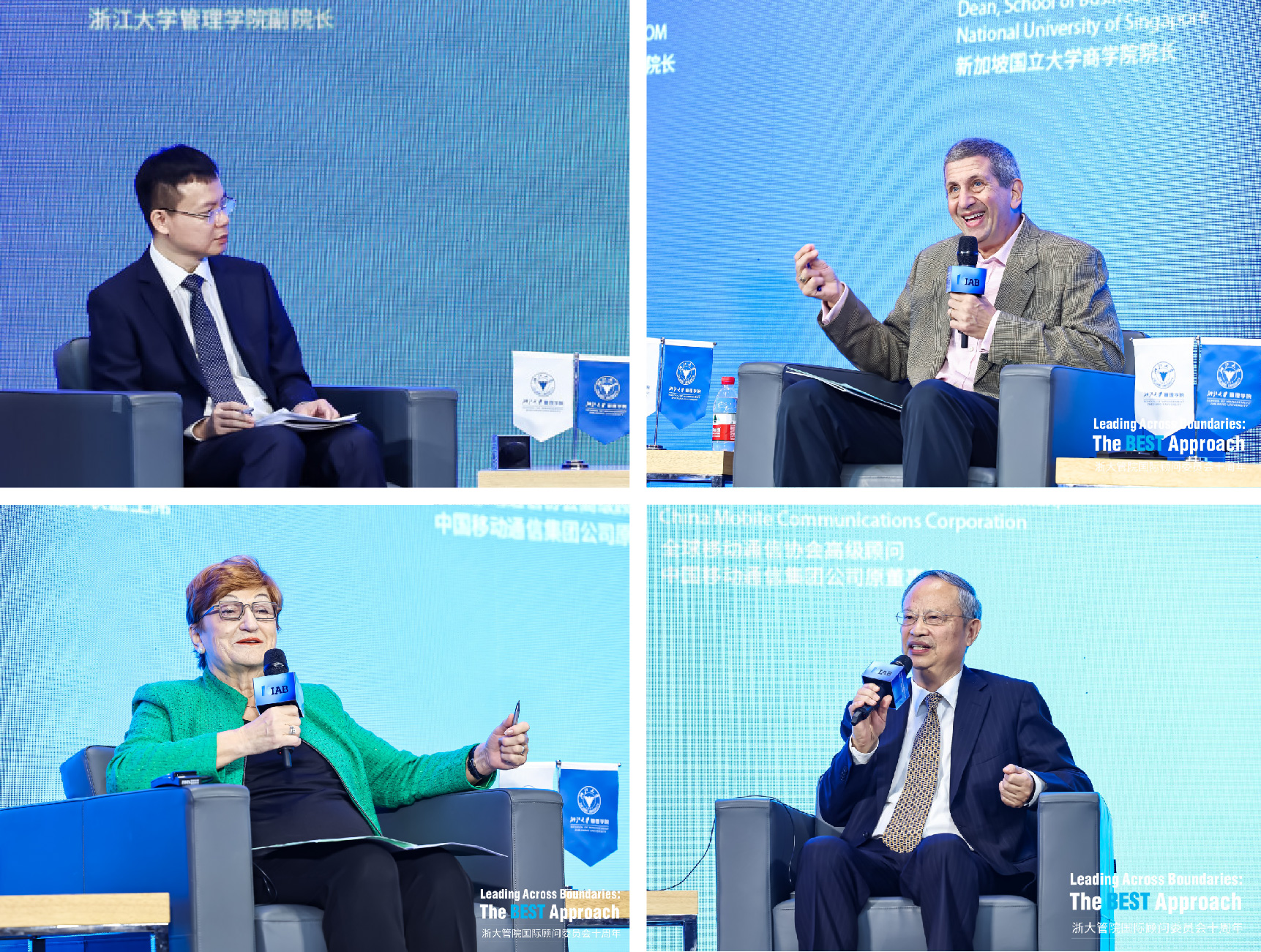
The forum emphasized that tackling global challenges requires the promotion of interdisciplinary collaboration and the integration of different perspectives from Business, Engineering, Science, and Technology. By celebrating the 10th anniversary of the International Advisory Board, the School of Management has reaffirmed its commitment to this approach. In the future, Zhejiang University School of Management aims to further contribute to the development of sustainable leaders and solutions that promote global prosperity and societal progress through sustained cross-border collaboration and innovative thinking.
- We transcend borders and work together to promote the intersection and integration of business, engineering, science, and technology. We would like to express our special thanks to our ZJUSOM Branding Office, Alumni Office, IT Office, International Cooperation and Accreditation Office, as well as many undergraduate students, MBA students, PhD students, and alumni for their joint commitment and active support in organizing this event! Our joint efforts make the ZJUSOM activities meaningful and inspire everyone to excel!
- You can read the original article in Chinese here